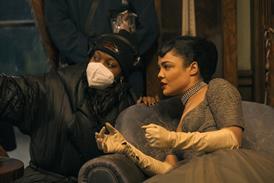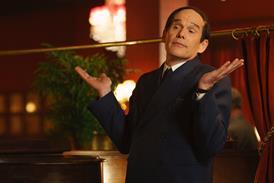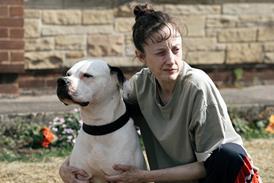The European Union’s Council of Culture Ministers agreed at a session in Brussels on Wednesday morning to a so-called partial general approach to the European Commission’s proposed Creative Europe programme after the Danish EU Presidency made a number of adjustments the proposal’s text.
Opening the Council session, Denmark’s Minister for Culture Uffe Elbaek reported that negotiations with the EU member states had been “good and constructive and broad agreement could be reached on an improved text and, at the final stage, it was adapted to meet remaining concerns from a number of delegations who wanted to strengthen the focus on non-profit organisation, cultural diversity and the intrinsic value of culture.”
EC Commissioner Androulla Vassiliou was asked for her opinion on the revised text for Creative Europe and called it “a balanced compromise text which clarifies a number of aspects of the original Commission proposal. This sets a clear signal that culture and media policymakers are ready to play their part in realising culture’s contribution both in terms of its intrinsic value and as a contribution to growth and jobs.”
At the same time, she pointed out that “the Commission cannot signal its agreement with this compromise proposal at this stage: first, because we need to formally wait for the opinion of the European Parliament and for the results of the overall Multi-Annual Financial Framework negotiations on horizontal issues impacting on Creative Europe.”
Each of the EU member state delegations was then given three minutes to present its general opinion about the Creative Europe programme and the new loan guarantee facility.
While the majority of the delegations spoke in glowing terms about the Commission’s plans, there were some negative noises from the German, Austrian, UK and Dutch culture ministers.
Germany’s State Minister for Culture and Media Bernd Neumann called for a budget breakdown for the individual strands of the framework programme and said that a future evaluation should be undertaken according to qualitative as well as quantative criteria. He expressed support for the guarantee facility but only if the overall budget was increased as planned: “what we don’t want is for the budget to not be increased and this to then be to the detriment of Culture, for example.”
Meanwhile, the UK’s Culture Minister Ed Vaizey [pictured] made it clear that he would not be able to support the partial general approach “because selection decisions which are important decisions would not be subject to member state scrutiny because they would be outside the formal comitology arrangement.” Turning to the proposed financial facility, he noted: “I think it is no secret that we have some concerns about whether it would be value for money and whether it should be part of the existing budget, rather than additional expenditure.”
Similarly, his Dutch colleague Halbe Zijlstra, State Secretary for Education, Culture and Science, reiterated his government’s opposition to the proposed 37% budget increase for the cultural and creative sectors and to the introduction of the financial facility: “The Dutch government has objections to extending this kind of financial instrument to the EU budget. I am wondering if a specific fund for the creative sector is really necessary, is a government fund the appropriate tool to stimulate risky investment?“
At the end of the exchange of views by the delegations, Vassiliou thanked them for a “very inspiring and fruitful discussion” and said that she was “pleased to see that we largely agree on the main elements of Creative Europe” and “particularly pleased that the Council supports the plan to bring current programmes together. I believe that will create an open and transparent gateway that will encourage transnational cooperation.”
Speaking at a press conference held after the Council’s morning session, she declared that it had been “a great morning for culture in general”. She accepted that the Council couldn’t reach final agreement on the Creative Europe proposal since the EU’s Multi-Annual Financial Framework (MFF) for 2014-2020 still has to be finalised.
At the same time, she felt that there had been “broad agreement” on the necessity and usefulness of the innovative financial facility. “It’s something new, it’s something that we must discuss further with the Ministers,” Vassiliou said, adding that its realisation “also depends to a great extent on how the MFF is approved and our budget for Creative Europe is maintained.”




















No comments yet